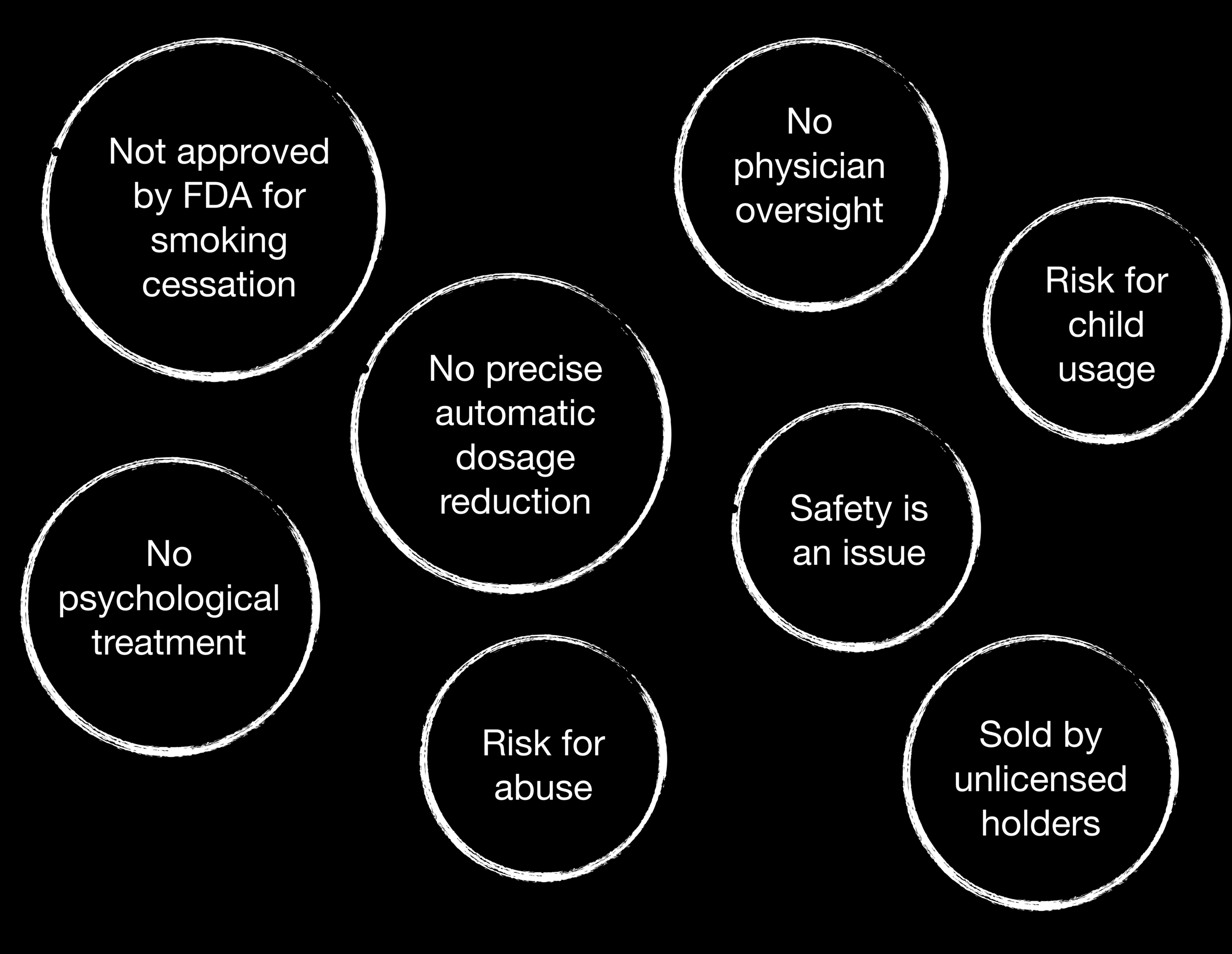According to the CDC, smoking-related illness in the US costs more than $300 billion each year. Smoking harms nearly every organ of the body, causing many diseases and affecting the health of smokers in general. For every person who dies because of smoking, at least 30 people live with a serious smoking-related illness.
Even though over two thirds of smokers want to quit, the average quit success rate has been hovering around 7% without showing any sign of improvement.
Current treatments are not effective.
35% of quit attempts involve the use of electronic cigarettes, making them the most popular aid to smoking cessation.
Current smoking cessation products like Nicotine Replacement Therapy and varenicline (Champix™) seek to treat a very complex addiction with a one-size-fits-all approach. Ditch is the first solution to adapt its treatment in real-time, based on craving intensity and behavioral feedback.
Electronic cigarettes are a cigarette alternative but are not an effective nicotine addiction treatment:
Although e-cigarettes represent a harm reduction alternative to traditional cigarettes, non-medical vaping devices are not designed to get rid of nicotine addiction and are not approved by the FDA or Health Canada as an aid to smoking cessation.



